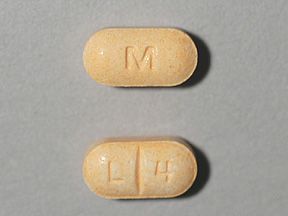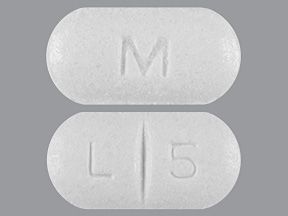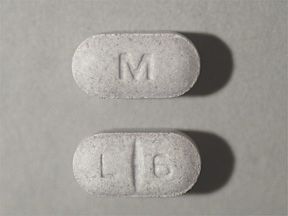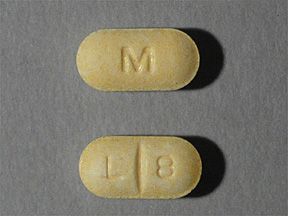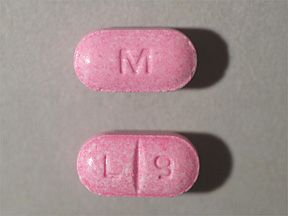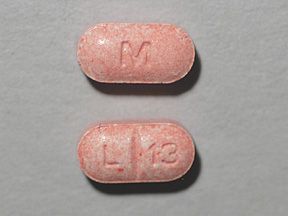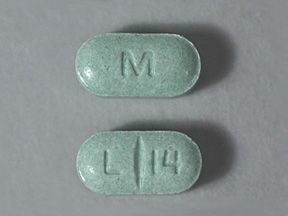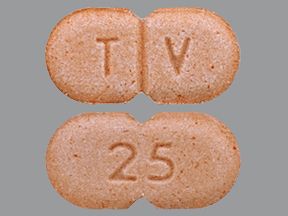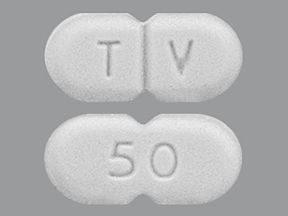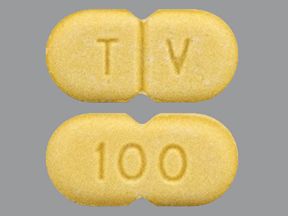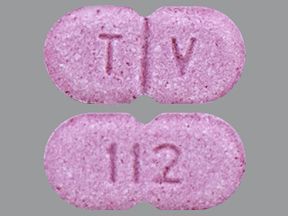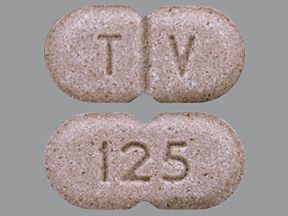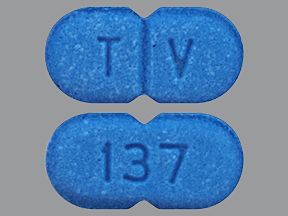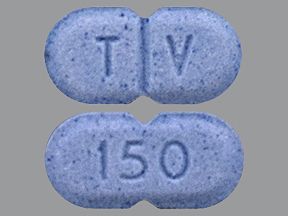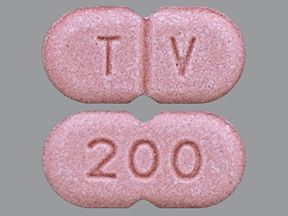- Levothyroxine oral tablet is available as brand-name drugs. It’s also available in a generic form. Brand names: Levoxyl, Synthroid, and Unithroid.
- Levothyroxine comes in three forms: an oral tablet, an oral capsule, and an injectable solution.
- Levothyroxine oral tablet is used to treat hypothyroidism. It’s also used to treat goiter and certain types of thyroid cancer.
Levothyroxine is a prescription drug. It comes as a tablet or capsule you take by mouth. It also comes as an injectable solution that’s only given by a healthcare provider.
Levothyroxine oral tablet is available as the brand-name drugs Levoxyl, Synthroid, and Unithroid. It’s also available as a generic drug. Generic drugs usually cost less than the brand-name version. In some cases, they may not be available in every strength or form as the brand-name drug.
Levothyroxine oral tablet may be used as part of a combination therapy. This means you may need to take it with other medications.
Why it’s used
Levothyroxine oral tablet is used to treat hypothyroidism. This is a condition when your thyroid gland produces too little thyroid hormone.
Levothyroxine also can be used to treat goiter, which is an enlarged thyroid gland. It also treats certain types of thyroid cancer.
How it works
Levothyroxine belongs to a class of drugs called hormones. A class of drugs is a group of medications that work in a similar way. These drugs are often used to treat similar conditions.
Levothyroxine works by providing the thyroid hormone that your thyroid gland would produce if it were working normally.
Levothyroxine oral tablet can cause side effects.
More common side effects
The more common side effects of levothyroxine can include:
- increased appetite
- weight loss
- heat sensitivity
- excessive sweating
- headache
- hyperactivity
- nervousness
- anxiety
- irritability
- mood swings
- trouble sleeping
- tiredness
- tremors
- muscle weakness
- changes in menstrual periods
- hair loss (usually temporary)
- diarrhea
- vomiting
- stomach cramps
If these effects are mild, they may go away within a few days or a couple of weeks. If they’re more severe or don’t go away, talk to your doctor or pharmacist.
Serious side effects
Call your doctor right away if you have serious side effects. Call 911 if your symptoms feel life threatening or if you think you’re having a medical emergency. Serious side effects and their symptoms can include the following:
- Heart attack. Symptoms can include:
- chest pain
- shortness of breath
- discomfort in your upper body
- Heart failure. Symptoms can include:
- shortness of breath
- extreme tiredness
- swelling in your legs, ankles, or feet
- unexpected weight gain
- Very fast heart rate
- Irregular heart rhythm
Disclaimer: Our goal is to provide you with the most relevant and current information. However, because drugs affect each person differently, we cannot guarantee that this information includes all possible side effects. This information is not a substitute for medical advice. Always discuss possible side effects with a healthcare provider who knows your medical history.
Levothyroxine oral tablet can interact with other medications, vitamins, or herbs you may be taking. An interaction is when a substance changes the way a drug works. This can be harmful or prevent the drug from working well.
To help avoid interactions, your doctor should manage all of your medications carefully. Be sure to tell your doctor about all medications, vitamins, or herbs you’re taking. To find out how this drug might interact with something else you’re taking, talk to your doctor or pharmacist.
Examples of drugs that can cause interactions with levothyroxine are listed below.
Interactions that increase the risk of side effects
Taking levothyroxine with certain drugs may result in an increase in adverse effects. Examples of these drugs include:
- Antidepressants such as amitriptyline and maprotiline. The side effects of both of these antidepressants and levothyroxine may increase when you take these drugs together. This may put you at risk for irregular heart rhythms (arrhythmias).
- Sympathomimetic drugs such as pseudoephedrine and albuterol. The effects of both the sympathomimetic drugs and levothyroxine may increase when you take these drugs together. This may put you at risk of serious heart problems.
- Blood thinners such as warfarin. Taking these drugs with levothyroxine may increase your risk of bleeding. Your doctor may need to decrease the dosage of your blood thinner if you’re also taking levothyroxine.
- Ketamine. Taking this drug with levothyroxine may increase your risk of high blood pressure and fast heart rate.
Interactions that can make your drugs less effective
When levothyroxine is less effective: When you take levothyroxine with certain drugs, it may not work as well to treat your condition. This is because the amount of levothyroxine in your body may be decreased. Examples of these drugs include:
- The antidepressant sertraline. If you take sertraline with levothyroxine, your doctor might need to increase your levothyroxine dosage to keep it working well for you.
- Rifampin and anti-seizure drugs such as carbamazepine and phenobarbital.
- Calcium carbonate or ferrous sulfate. Take levothyroxine at least 4 hours before or after taking these medications to help make sure that levothyroxine works properly.
- Colesevelam, cholestyramine, colestipol, kayexalate, or sevelamer. Take levothyroxine at least 4 hours before taking these medications to help make sure that levothyroxine works properly.
- Orlistat.
- Simethicone and antacids such as aluminum or magnesium.
- Cancer drugs that belong to the tyrosine-kinase inhibitors class, such as imatinib.
When other drugs are less effective: When certain drugs are used with levothyroxine, they may not work as well. This is because the amount of these drugs in your body may be decreased. Examples of these drugs include:
- Diabetes drugs, such as insulin, metformin, nateglinide, glipizide, and pioglitazone. If you take any of these diabetes drugs with levothyroxine, your doctor may need to increase your dosage of these drugs.
- Digoxin. If you take this drug with levothyroxine, your doctor may need to increase your dosage of digoxin.
- Theophylline. Your doctor may monitor the levels of theophylline in your body if you take it with levothyroxine.
Disclaimer: Our goal is to provide you with the most relevant and current information. However, because drugs interact differently in each person, we cannot guarantee that this information includes all possible interactions. This information is not a substitute for medical advice. Always speak with your healthcare provider about possible interactions with all prescription drugs, vitamins, herbs and supplements, and over-the-counter drugs that you are taking.
All possible dosages and drug forms may not be included here. Your dosage, drug form, and how often you take the drug will depend on:
- your age
- the condition being treated
- how severe your condition is
- other medical conditions you have
- how you react to the first dose
Drug forms and strengths
Generic: Levothyroxine
- Form: oral tablet
- Strengths: 25 mcg, 50 mcg, 75 mcg, 88 mcg, 100 mcg, 112 mcg, 125 mcg, 137 mcg, 150 mcg, 175 mcg, 200 mcg, 300 mcg
Brand: Levoxyl
- Form: oral tablet
- Strengths: 25 mcg, 50 mcg, 75 mcg, 88 mcg, 100 mcg, 112 mcg, 125 mcg, 137 mcg, 150 mcg, 175 mcg, 200 mcg
Brand: Synthroid
- Form: oral tablet
- Strengths: 25 mcg, 50 mcg, 75 mcg, 88 mcg, 100 mcg, 112 mcg, 125 mcg, 137 mcg, 150 mcg, 175 mcg, 200 mcg, 300 mcg
Brand: Unithroid
- Form: oral tablet
- Strengths: 25 mcg, 50 mcg, 75 mcg, 88 mcg, 100 mcg, 112 mcg, 125 mcg, 137 mcg, 150 mcg, 175 mcg, 200 mcg, 300 mcg
Dosage for hypothyroidism
Adult dosage (ages 18–49 years):
- Your dosage will be based on several factors, including your age, weight, thyroid hormone levels, other conditions you have, and other medications you take. The typical dosage is 1.6 mcg/kg/day.
- Dosages are usually less than 200 mcg/day.
Child dosage (ages 0–17 years):
The dosage is based on weight and thyroid hormone levels.
Senior dosage (ages 50 years and older):
- The typical starting dosage is 12.5–25 mcg/day.
- Your doctor will adjust your dosage every 6–8 weeks, based on your thyroid hormone lab results.
Dosage for goiter
Adult dosage (ages 18 years and older):
Your dosage is based on your needs and thyroid hormone levels. Your doctor will determine the right dosage for you and adjust it based on your current level of thyroid hormone.
Child dosage (ages 0–17 years):
There are no dosage recommendations for people younger than 18 years.
Dosage for thyroid cancer
Adult dosage (ages 18 years and older):
Your dosage is based on your needs and thyroid hormone levels. Your doctor will determine the right dosage for you and adjust it based on your current level of thyroid hormone.
Child dosage (ages 0–17 years):
There are no dosage recommendations for people younger than 18 years.
Dosage for special populations
For pregnant women: You may need a higher dosage of levothyroxine.
For people with heart disease:
- The recommended starting dosage is 12.5–25 mcg/day.
- Your dosage may be adjusted every 6–8 weeks.
Disclaimer: Our goal is to provide you with the most relevant and current information. However, because drugs affect each person differently, we cannot guarantee that this list includes all possible dosages. This information is not a substitute for medical advice. Always speak with your doctor or pharmacist about dosages that are right for you.
FDA warning: Not for obesity or weight loss
- This drug has a black box warning. This is the most serious warning from the Food and Drug Administration (FDA). A black box warning alerts doctors and patients about drug effects that may be dangerous.
- Thyroid hormones, including levothyroxine, should not be used for weight loss or to treat obesity. Taking doses that are higher than recommended can lead to serious or even life threatening effects.
Vitamin supplements and antacids warning
Taking iron and calcium supplements or antacids can decrease the amount of levothyroxine your body absorbs. Do not take levothyroxine within 4 hours of taking these supplements or antacids.
Allergy warning
Levothyroxine can cause a severe allergic reaction. Symptoms can include:
- skin rash or hives
- flushing
- swelling of your face, lips, throat, or tongue
- trouble breathing
- wheezing
- stomach pain
- nausea
- vomiting
- diarrhea
- fever
If you develop these symptoms, call 911 or go to the nearest emergency room.
Don’t take this drug again if you’ve ever had an allergic reaction to it. Taking it again could be fatal (cause death).
Food interactions warning
Certain foods, such as soybean flour, cotton seed meal, walnuts, and other dietary fibers, may affect how well your body absorbs levothyroxine.
Warnings for people with certain health conditions
For people with heart problems: Levothyroxine can increase your risk of serious heart problems, such as heart attack, abnormal heart rhythm, and heart failure. This risk is increased if you’ve already had these problems. Tell your doctor if you have heart problems or a history of heart problems. Your doctor may decide to start you on a lower dosage of levothyroxine.
For people with diabetes: Let your doctor know if you have diabetes. Taking levothyroxine can make your diabetes worse. Your doctor may monitor your blood sugar level more closely while you take this drug and adjust your diabetes drugs if needed.
For people with osteoporosis: Using levothyroxine for a long time can cause decreases in your bone mineral density and put you at higher risk of bone fractures.
For people with adrenal or pituitary gland problems: Let your doctor know if you have any adrenal or pituitary gland problems. Using levothyroxine can cause changes to your levels of thyroid hormone that could make these problems worse.
For people with blood clotting disorders: Let your doctor know if you have any blood clotting disorders. Taking levothyroxine may make it more difficult for your blood to clot and make bleeding more likely.
Warnings for other groups
For pregnant women: Studies of levothyroxine in pregnant women haven’t shown risk to the fetus. Talk to your doctor if you’re pregnant or planning to become pregnant. It appears unlikely that this drug will harm a pregnancy.
Not treating hypothyroidism could cause problems for both you and your pregnancy. You should not stop taking this drug during pregnancy.
For women who are breastfeeding: Small amounts of levothyroxine may pass into breast milk, but this drug is usually safe to take while breastfeeding. Talk to your doctor about the best way to feed your child while taking levothyroxine.
For seniors: If you’re older than 65 years, you may be at higher risk of developing negative heart effects (such as irregular heart rhythms) while taking this drug. Your doctor may choose to start you on a lower dosage.
For children: Levothyroxine has only been approved for use in children for the treatment of hypothyroidism. The tablet can be used safely in children of all ages.
Levothyroxine oral tablet is used for long-term treatment. It comes with serious risks if you don’t take it as prescribed.
If you stop taking the drug or don’t take it at all: Your thyroid hormones will remain low, which may result in low energy levels, tiredness, weakness, slower speech, constipation, or thickened skin. It may even lead to coma.
If you miss doses or don’t take the drug on schedule: Your medication may not work as well or may stop working completely. For this drug to work well, a certain amount needs to be in your body at all times.
If you take too much: You could have dangerous levels of the drug in your body. Symptoms of an overdose can include:
- confusion
- disorientation
- stroke
- shock
- coma
If you think you’ve taken too much of this drug, call your doctor or local poison control center. If your symptoms are severe, call 911 or go to the nearest emergency room right away.
What to do if you miss a dose: Take your dose as soon as you remember. But if you remember just a few hours before your next scheduled dose, take only one dose. Never try to catch up by taking two doses at once. This could result in dangerous side effects.
How to tell if the drug is working: You should feel your symptoms of low thyroid hormone decrease. For instance, you should have more energy, less tiredness, and less weakness.
Keep these considerations in mind if your doctor prescribes levothyroxine for you.
General
- Take levothyroxine without food, on an empty stomach.
- Take levothyroxine in the morning. Take it 30 minutes to 1 hour before your first meal of the day.
- You can cut or crush the tablet.
Storage
- Store levothyroxine at room temperature between 59°F and 86°F (15°C and 30°C).
- Keep it away from light.
- Don’t store this medication in moist or damp areas, such as bathrooms.
Refills
A prescription for this medication is refillable. You should not need a new prescription for this medication to be refilled. Your doctor will write the number of refills authorized on your prescription.
Travel
When traveling with your medication:
- Always carry your medication with you. When flying, never put it into a checked bag. Keep it in your carry-on bag.
- Don’t worry about airport X-ray machines. They can’t harm your medication.
- You may need to show airport staff the pharmacy label for your medication. Always carry the original prescription-labeled container with you.
- Don’t put this medication in your car’s glove compartment or leave it in the car. Be sure to avoid doing this when the weather is very hot or very cold.
Clinical monitoring
Your doctor will monitor your thyroid hormone levels during your treatment with this drug. Your doctor will have blood tests done to make sure your thyroid hormone level is within the range they feel is best for you. The tests will tell if your medication is working.
Your diet
Certain foods (such as soybean flour, cotton seed meal, walnuts, and other dietary fibers) may affect how well your body absorbs levothyroxine. Talk to your doctor about whether you should make any changes to your diet.
Prior authorization
Many insurance companies require a prior authorization for certain brand-name forms of this drug. This means your doctor will need to get approval from your insurance company before your insurance company will pay for the prescription.
There are other drugs available to treat your condition. Some may be better suited for you than others. Talk to your doctor about other drug options that may work for you.
Disclaimer: Medical News Today has made every effort to make certain that all information is factually correct, comprehensive, and up to date. However, this article should not be used as a substitute for the knowledge and expertise of a licensed healthcare professional. You should always consult your doctor or other healthcare professional before taking any medication. The drug information contained herein is subject to change and is not intended to cover all possible uses, directions, precautions, warnings, drug interactions, allergic reactions, or adverse effects. The absence of warnings or other information for a given drug does not indicate that the drug or drug combination is safe, effective, or appropriate for all patients or all specific uses.

